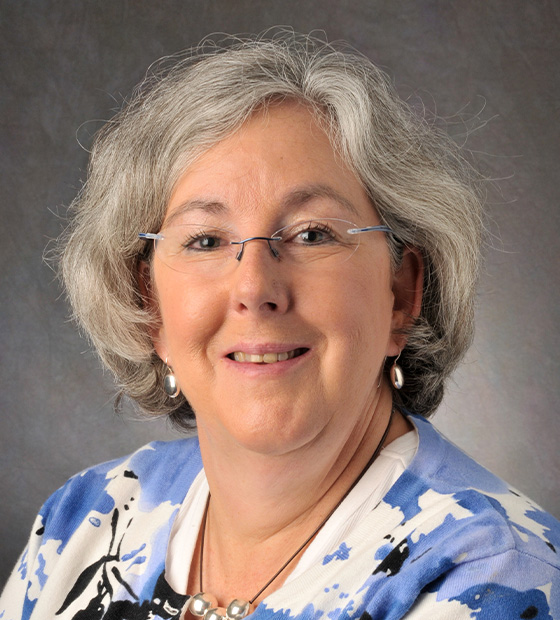 Farrington
FarringtonIt is an honor to be elected to serve as the 2022–2023 president of the American College of Clinical Pharmacy and follow in the footsteps of those who have served before me. Although each president chooses their own theme for the year, these themes do not end after a year. Instead, we work together as a presidential team (president-elect, president, and immediate past president) to ensure the College’s continued success. This year, we will continue to carry out the work stemming from 2020–2021 President Jimmi Hatton Kolpek, continuing our journey to “become inclusive leaders, bridge diversity gaps, and build health equity in ourselves and our own programs” as we incorporate recommendations from the College’s Task Force on Diversity, Equity, and Inclusion (DEI). In addition, the theme adopted in 2021–2022 by President Leigh Ann Ross, “Advocacy to Advance Our Profession,” is a great lead-in to my theme for 2022–2023, “Teamwork: Partnering to Achieve Optimal Patient Outcomes.”
There are many forms of partnership that can improve outcomes. ACCP is already an organizational “team player” through its active memberships in the Get the Medications Right Institute, Pharmacy Quality Alliance, Joint Commission of Pharmacy Practitioners, and Council on Credentialing in Pharmacy, to name a few. In addition, the College supports the petition for board certification in Pain and Palliative Care together with six other pharmacy organizations. ACCP also partners with Virginia Commonwealth University and ASHP in sponsoring the Congressional Healthcare Policy Fellowship. These are just a few examples of how ACCP partners with others across the profession.
ACCP members also form partnerships to ensure optimal patient care, including improved patient access to care in underserved areas, with consideration for the social determinants of health. For example, inpatient pharmacists may partner with physicians, nurse practitioners, physician assistants, respiratory therapists, nurses, and dietitians; ambulatory care teams are similar and may be more specialized in some cases. Industrialist and philanthropist Andrew Carnegie once said, “Teamwork is the ability to work together toward a common vision.” Indeed, we as ACCP members practice as members of multidisciplinary teams, working toward the common vision of improving the care and satisfaction of our patients.
Clinical pharmacists must also form partnerships to ensure proper transitions of care. For instance, as members of the health care team, many of the College’s ambulatory care pharmacists partner with their community pharmacy practitioners to provide ongoing care for patients in the community setting. This is critically important for patients who live in underserved areas. Such transitions establish optimal patient care and culminate in a high level of patient satisfaction. In Carnegie’s words, “[Teamwork] is the fuel that allows common people to attain uncommon results.”
Moreover, ACCP and its members must continue to publish innovations and best practices to allow those who work in similar settings to implement them and build on their successes. Professional soccer player Mia Hamm said, “Celebrate what you’ve accomplished, but raise the bar a little higher each time you succeed.” Indeed, we as pharmacists should not only celebrate what we’ve accomplished, but also evaluate how we can continue to improve patient outcomes – raising the bar a little higher upon each accomplishment and that for our team members as well. Team members must have a strong work ethic and dedication to the team, the spirit not to give up when obstacles are in their way, and the willingness and ability to work within the team to overcome barriers. Working with exceptional team members makes other team members want to work harder to improve their performance. By working together, we will ultimately improve patient outcomes. “The strength of the team is each individual member [and] the strength of each member is the team,” wrote famed NBA coach Phil Jackson.
At ACCP, we must also remember to pass on the inspiration we received to the next generation of clinical pharmacists that will follow us. Our hard work and dedication to improve the care of patients should inspire pharmacy students, residents, and fellows to excel. Olympic great Katie Ledecky is quoted as saying, “I hope we will continue to pass on [the inspiration that was given to us] to future swimmers,” adding “I think there are a lot of champions out there that we can inspire to get into the sport.” The same is true for the pharmacy profession.
ACCP committees and task forces also work in teams to meet the goals and objectives of their assigned charges. The charges to our committees and task forces arise from member input provided on the College’s annual issues survey, the goals and objectives of the ACCP Strategic Plan, and the need to update existing ACCP papers. Students, residents, and fellows are appointed to committees and task forces whenever possible to engage them in early career and leadership development.
I am excited by the success of ACCP’s members and how the College uses teamwork to establish new and creative partnerships to improve patient outcomes. The hard work and dedication of our members raise the standards of patient care and serve as an inspiration within ACCP and to future leaders of our profession. Through our partnerships and ensuing contributions to practice and research, we will without doubt continue to demonstrate to other health care professionals and patients the importance of clinical pharmacists as essential partners in team-based care.